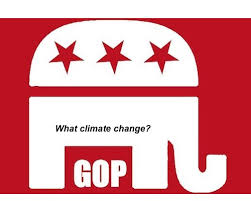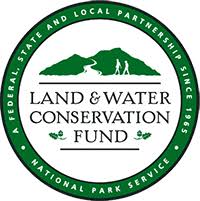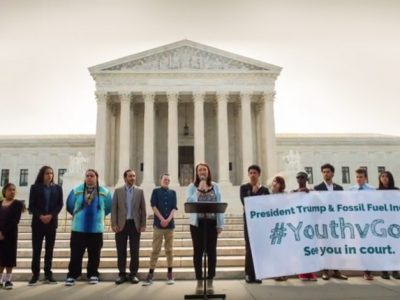No, It’s Not Over
The threat of COVID-19 continues to loom over us.
We’re all sick of being locked down, and the economic downturn has been brutal. There’s a palpable sense that it’s time to put the coronavirus behind us and move on. Unfortunately, the coronavirus does not agree. People now seem used to the idea of hundreds of new coronavirus deaths a day. Yet, even 500 deaths per day would equate to a 9/11 event every week. And we're still well above that death rate in this country at an average of around 750 deaths daily...
CONTINUE READINGDC Circuit Restricts “Housekeeping” Regulations
The Trump Administration likes to justify policy initiatives based on vague grants of authority. That's just become harder.
Earlier today, the D.C. Circuit Court of Appeals decided two cases that add to the legal difficulties the Trump EPA will face in court. The difficulties relate to two proposed EPA rules that attempt to hamstring future efforts to impose tighter restrictions on pollution. Both EPA rules rely on vague, general grants of rule-making authority from Congress. That just became more tenuous. One of the EPA proposals is the so-called “science transparency rule,” which...
CONTINUE READINGWhat Does Today’s Decision Holding that Employers Can’t Discriminate Against LGBTQ Employees Have to Do with Climate Change?
The case provides potent ammunition for using the Clean Air Act to regulate carbon pollution
Today's blockbuster opinion in Bostock v. Clayton County, Georgia, holding that employers can't fire LGBTQ workers under Title VII of the Civil Rights Act, may seem far afield from the regulation of greenhouse gases under the Clean Air Act. But its reasoning could have huge implications for climate change action. In saying that discrimination on the basis of sex under Title VII should be read to include discrimination on the basis of sexual orientation, Justice Gors...
CONTINUE READINGDeja Vu All Over Again
There's a new GOP Platform, same as the old one.
It appears that the GOP won’t have a new platform this year. Instead, they’re going to stick with their 2016 platform. You could see that as steadfastness or a lack of new ideas. In the environmental arena, 2016 is still where the GOP is stuck today, celebrating fossil fuels and rejecting climate action. Here are some key provisions from the 2016 Republican Platform. Climate Change “The Environmental Protection Agency has rewritten laws to advance the De...
CONTINUE READINGSurprise! Major Land Conservation Bill Poised to Pass Congress
Republican-Led Senate Prepared to Preserve Public Lands--and Political Careers?
Over the past decade, we've become resigned to the sad fact of congressional gridlock: a hopelessly partisan and paralyzed Congress, seemingly unable to pass major legislation on the environmental protection, natural resource conservation or, indeed, any number of other policy fronts. So it has to come as a shock to most observers that this week the U.S. Senate is poised to pass the first major federal public lands bill in decades. The legislation will then move t...
CONTINUE READINGGuest Contributors Matt Lifson, Camila Bustos, and Natasha Brunstein: Redressability of Climate Change Injuries after Juliana
Juliana Litigation’s Disappointing Result Leaves Room for Future Climate Plaintiffs to Allege Redressable Injuries
In the landmark Juliana litigation, the youth plaintiffs sought a judicial decree telling the federal government to develop and implement a plan to do its part to reduce atmospheric CO2 concentrations to 350 ppm. The Ninth Circuit dismissed Juliana, holding that the youth plaintiffs’ constitutional and public trust claims were not redressable by an Article III court. The panel concluded it lacked the power to order a carbon-reduction plan because the judiciary would ne...
CONTINUE READINGThe Conservative Assault on Presidential Administration
Are they afraid of “faceless bureaucrats”? Or Democratic Presidents?
Conservatives are on a campaign to reduce agency discretion. They don’t seem to realize that in today’s world, that really amounts to an attack on presidential power. These days, it’s generally not bureaucrats or even cabinet officers who make the real decisions about regulation. It’s the White House. So the campaign against the administrative state really amounts to an effort to neuter the President’s authority over domestic policy. This conservative ef...
CONTINUE READINGTapping the Earth’s Power
Geothermal power could play an important role in decarbonization.
There's been a lot of recent interest in geothermal energy. It can complement other renewables as they become a bigger part of the power mix. A recent study by DOE suggests that geothermal capacity could reach 60 Gigawatts by 2050. The basic technology is pretty simple: drill down into a reservoir of super-hot water (up to 700 °F), then use the water to run turbines. The wells have various depths, sometimes up to two miles. If the water is below 360 °F, it’s often...
CONTINUE READINGTrump EPA Takes Aim at Cost Benefit Analysis; Misses
The proposed new EPA regulation on cost-benefit analysis seems to be a dud.
An EPA rule-making on cost-benefit analysis was supposed to be a big win for conservatives and industry. They want to rig cost-benefit analysis by counting all of a regulation's costs but only some of the benefits. But the EPA proposal issued last week appears to give them only a token victory. The issue involves what are called co-benefits, which are positive side-effects of a regulation. For instance, suppose EPA issues a rule to reduce CO2 emissions from coal-f...
CONTINUE READINGEnvironmentalists Can Help Address Racism Through Housing Policy
Restrictive local zoning affects both the environment and racial justice
As the United States grapples with issues of racism and police brutality in the wake of the killing of George Floyd by Minneapolis police officers, environmentalists need not be bystanders in the debate over solutions. As Claudia and Steve argued on this blog, environmentalism has multiple opportunities to help address institutional racism, though few issues cross cut racism and environmentalism more than housing policy. Environmentally, housing policy that enco...
CONTINUE READING












